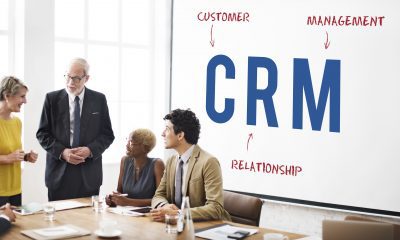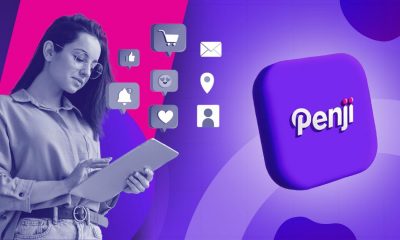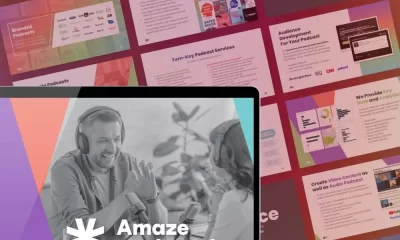Business
Having Haters Can Be Good For Business
Published
6 years agoon

We all know at least one person who is always on our case and have nothing positive to say, but always seem to know what you are up to. As annoying as these people are, we can use them to our advantage.
Here are some of the reasons why haters can actually be beneficial:
Use them to gauge your own success
The more haters you have, the better! That just means more people are paying attention to what you are doing and may actually be jealous. Don’t get me wrong, we should not be doing things just to make people jealous, but realize that they are paying attention to you for a reason. That reason is most likely that you are doing something different or something successfully. Also remember that the number of supporters you have is likely growing at a higher rate than your haters are.
If you deal with them correctly, you build your own personality
I always say that, other than my friends and family, my haters have shaped me into the man I am today. How you deal with hate and criticism is important in today’s world, unfortunately. It is the most difficult times in my life that have influenced me the most.
It’s so satisfying to prove them wrong
I once told someone that I would be pursuing a leadership role. They responded negatively saying, “Are you sure? Can you handle that type of responsibility?” Lucky for me, that motivated me twice as much, and the following month, I took on the roll and killed it.
Cut through the noise
Most of what a hater says is nonsense, but sometimes, they mistakenly tell you something that can help you. It is not always beneficial to completely tune the haters out. Unknowingly and (most certainly) unintentionally, they may let you in on a way to better yourself or your company. Use their criticism to your advantage.
“If you don’t have haters, you are doing something wrong.”
This is a widely shared quote. There are multiple versions of it but the idea is still the same. People get upset when you go against the grain. Don’t let them stop you.
“Haters gonna hate, taters gonna tate.”
Don’t ever let it get you down. Brush it off and keep moving forward, because it’s in the nature of a hater to hate.
In reality, we do not need negative people in our lives. Life and work can be stressful enough, without having people say you can’t do this or you can’t do that. My advice is to cut as many haters as you can out of your life or avoid them if at all possible. That being said, when they are unavoidable, use them to your advantage.
If everyone who received criticism stopped what they were doing we would have no innovators!
This is a list of a few of the people who fought through criticism to become some of the most influential people in the world:
Benjamin Franklin, Inventor – Imagine what people thought about a man who thought he could make create light from electricity. He kept working and blocked out negativity. Now you see him on the $100 bill.
Stephen King, Author – His first book was rejected over 30 times. He went on to write The Shining, It, 11/22/63, and Misery. Many of his works went on to become movies and TV shows.
Walt Disney, Entrepreneur – You may have heard of his company. His first few cartoon characters, Mickey Mouse and the Three Little Pigs, were rejected when initially created!
Van Gogh, Artist – This artist struggled a lot during his life. He barely sold his paintings and became famous after death. People thought his work was terrible at the time, but you may know him as the creator of Starry Night, Café Terrace at Night, and his famous self-portrait.
Henry Ford, Innovator – He is the inventor of the first affordable car. He is also the founder of the Ford Motor Company. People considered his car a fad at the time. Boy, were they all wrong.
The Wright Brothers, Inventors – They are the aviation pioneers who built the first airplane. These guys thought that they could fly in the air like birds… how crazy!
JK Rowling, Author – Our dear friend Harry Potter may never have become a book or movie if Rowling didn’t keep pushing on. Her manuscript for the first book was rejected by multiple publications before someone picked it up.
Malala Yousafzai, Activist – Malala is a Pakistani schoolgirl, who fought for the right to education and equality for women. ISIS and the Taliban have threatened her life multiple times. At one point, she was even shot on her school bus. She didn’t stop. Malala is the youngest person to ever receive a Nobel Peace Prize.
Steve Jobs, Inventor – Did you know Steve Jobs, co-founder of Apple, was fired from the company in 1985? As we know, he later joined the company again and made it the powerhouse it is today.
Martin Luther King Jr., Activist – Martin Luther King Jr. faced a lot of criticism as the leader of the Civil Rights Movement. He fought for what he believed in and his words still ring true today.
Moral of the story, haters are going to be here no matter what you do. It is up to you to move forward and continue doing what makes you happy.
You may like
How to Determine Which Social Network Is Right For Your Business
170 Web Design Questions to Ask Your Clients
What’s the Best Design Agency in Chicago
The Top CRM Platforms for Small Agencies & Service Businesses
What’s the Best Graphic Design Service for Startups
What’s the Best Print Media Design Service Agency?
Business
5 Quiet Operational Leaks Costing Fortune 500s Millions
Published
3 days agoon
February 2, 2026By
Carmen Day
TL;DR – Even enterprises lose millions of dollars not from major product or investment failures but from operational issues hidden from plain sight, such as decision-making inefficiencies, workflow problems, execution and tech systems, and slow customer feedback integration.
Whatever the size of the business, operational efficiency is a crucial factor that spells the difference between a venture that thrives and one that bleeds. In fact, a study cited by Forbes revealed that companies lose 20% to 30% of revenue to process inefficiencies annually.
While it’s easy to assume that operational issues affect businesses more when they’re still at their initial growth phase, not many realize that these small inefficiencies could amplify consequences during scaling, when headcount, revenue, and investments grow fast.
In this article, let’s unpack five common operational areas where issues go unnoticed, causing even Fortune 500 companies millions of dollars. We’ll also discuss the best practices in each area to help optimize operations.
1. Decision Latency
How much time passes between identifying an issue in your organization and actually taking an action to address or correct it?
Oftentimes, enterprises have too many stakeholders, making it harder to align and make decisions fast. In addition, risk-avoidant companies typically push decisions upward, giving birth to a risk-escalation culture.

But does slower decision-making equal better decision-making? Not really. A survey by McKinsey & Company shows that people who spend more than one-third of their time and those who spend less reported the same effectiveness. The same survey reveals that 78% of respondents were involved in cross-cutting decisions, which typically require multiple approval layers.
It all boils down to a lack of a decision system design, which means repeated reviews, muddled accountability, and cross-functional dependency loops that could eat up time and other resources. How does it translate to real-world operational issues? Think project launch delays, missed market opportunities, and campaign schedule disruptions.
Best Practice: Build a decision design system that defines who should make and own which types of decisions. The design must also identify which decisions can go ahead without needing escalation.
2. Cross-Functional Hand-Offs
There are always opportunities for inefficiency within a department or team when all its parts are moving. This opportunity further widens when work moves across departments, regions, and even vendor arrangements.
Research by Deloitte on Global Business Services models shows that having a standard structure to unify cross-functional operations can reduce costs by 5 to 10%. Without such a unified structure, it means the company is missing potential efficiency gains of up to 10%.
At scale, the operational efficiency in this area can lead to duplication of work, loss of context, and delays between functions caused by poorly coordinated queues.
Best Practice: Design workflows that foster end-to-end accountability instead of workflows that pass through department boundaries. Doing so can help reduce cross-functional issues and improve speed.
3. Creative Execution and Production Workflows
Creativity doesn’t come cheap. A survey of over 1,000 businesses found the average monthly agency cost of social media marketing to be between $100 and $5,000, search engine optimization (SEO) at around $2,500, and content marketing falling at $5,001 to $10,000.
And these are just the regular businesses. Fortune 500 companies could potentially allot more resources for the production of creative assets, as well as campaign design and marketing assets.
And here’s where it can get tricky: expensive as it is already, creative execution and production can leak even more resources when there’s no clear creative workflow and regional offices recreate the same assets. It could also be the case when there’s an overlap between the work done by internal creative teams, agencies, and hired freelancers.

Most importantly, brands of all sizes risk suffering financially when there’s creative inconsistency. A 2024 UK study by System1, the Creative Effectiveness Platform, and the Institute of Practitioners in Advertising revealed that brands that didn’t focus on creative consistency needed to spend more to achieve the same growth as those that did. In fact, the cost gap is estimated at £3.47 billion.
System1 Global Partnerships Senior Vice President Andrew Tindall emphasized the data’s implication on businesses.
“…Brands win big on fame building, profit gain, market share gain and more when they foster a culture that supports creativity and consistency,” Tindall said in a statement.
Best Practice: Standardize the creative workflow and ensure that it’s centralized to reduce production timelines and improve creative consistency. Internal shared-service teams or design-as-a-service platforms like Penji can help streamline production and maintain consistent output.
4. Complexity Tax
Getting the latest AI solutions or adding something new to your tech stack regularly might seem productive, but it could be the opposite.
In fact, a study by Nexthink found that 49.96% of software installed in 2023 was unused by team members. This average spans 6 million customer environments in 12 regions, putting forward the question of sustainable efficiency.
However, pulling out from licenses altogether isn’t the solution and could even lead to higher costs that could quietly waste millions, according to Nexthink Chief Strategy and Marketing Officer Yassine Zaied.
“Only when IT has access to all the information about who is using what, what is not used, what is still performing and what needs to be repaired or replaced, can it see and take advantage of greater efficiencies in a sustainable and recurring manner,” Zaied said.
Best Practice: Design your tech ecosystem based on the value they offer around your workflow, and not based on maximizing the tools because they’re already available. By doing so, you can avoid redundant tools and improve tech adoption across teams.
5. Customer Feedback Integration Latency
Fortune 500 leaders have always been vocal about the importance of customer satisfaction.
As Michael L. Tipsord, the former CEO and Chairman of State Farm Insurance, once said, “Our success in serving our customers, that is what will ultimately determine the opportunities that are available to all of us.”
Walmart founder Sam Walton, meanwhile, famously said the customer is the boss.
“And he can fire everybody in the company from the chairman on down, simply by spending his money somewhere else,” Walton emphasized.
In an ideal business environment, customer feedback is part and parcel of product and service improvement. And rarely do enterprises lack data; the problem lies with integrating that data into their operations.

The American Customer Satisfaction Index 2025 Q3 results point to a broader systemic risk. While the national score remained flat at 76.9, it followed a period of decline and long-term stagnation. Analysts say this trend could potentially decouple buyer utility from seller profit, meaning companies may continue generating revenue without improving customer value.
Whether you’re managing a Fortune 500 company or a small business, one thing holds true: customer feedback is only valuable when you convert it into action in a timely manner.
Best Practice: Make sure your feedback systems move at the same speed as your customers. Treat feedback as a core part of your operating system and not a separate entity that’s only reviewed when the occasion presents itself.
Frequently Asked Questions (FAQs)
What is decision latency in simple terms?
Decision latency pertains to the time between identifying an issue and the time the company takes action to address such an issue.
Why are cross-functional hand-offs risky for large companies?
Cross-functional hand-offs can pose risks for enterprises because there’s always a chance for miscommunication, context misinterpretation, and work duplication. Such hand-offs can also make accountability harder to define clearly.
Why do Fortune 500 companies still experience operational inefficiencies?
Scale not only increases revenue and opportunities but also the complexities that come with it, especially when the inefficiencies that remain unnoticed between the processes multiply across teams and systems.
Featured Image Credit: Photo by Artem Podrez from Pexels
Business
5 Things Even Fortune 500 Companies Quietly Waste Money On
Published
3 days agoon
February 2, 2026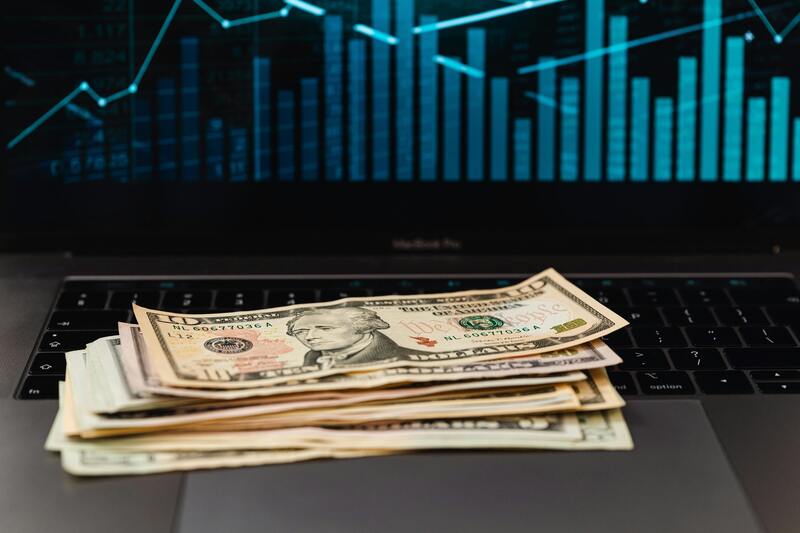
It’s a common misconception that efficiency comes naturally with increased organizational scale. For large enterprises, this is not true. More than half of the companies on the Fortune 500 list from 2000 are gone. Few of these failures can be attributed to a lack of resource availability they failed because of growing operational inefficiencies.
The threat posed by increasing inefficiency is not exclusive to failing organizations. Many of today’s most successful companies are still subject to it. The company’s size and complexity mask these inefficiencies, making it difficult to identify the source of corporate waste.
Below are five ways that even the most successful organizations are wasting value, and how others have overcome these operational flaws.
1. The “Zombie” Project Portfolio
Large organizations often solve the wrong problems with high-quality execution. This “signal blindness” happens when a company pours resources into optimizing a legacy process instead of reimagining the outcome. Blockbuster, for instance, didn’t ignore the market; it perfected its store layouts and late fee revenues. It solved for “retail efficiency” while the market pivoted to the “delivery efficiency” of streaming.
Today, this results in “zombie projects”—initiatives that are functional but strategically obsolete. They survive on executive sponsorship or the sunk cost fallacy. The corporate waste isn’t just the team’s salaries; it’s the opportunity cost. Every dollar spent optimizing a dying workflow is a dollar stolen from innovation.
2. Fragmented Creative Execution
As companies grow, their marketing and creative needs expand, often leading to a decentralized approach. One team hires a boutique agency for rebranding, another uses freelancers, while others rely on overworked in-house teams. This fragmentation creates a “creative tax”—paying premium rates for simple tasks and risking brand inconsistency when too many hands touch the visual identity.
To address this, forward-thinking companies are adopting systemized execution models. By auditing creative workflows, they categorize tasks by complexity; high-concept strategy stays with premium agencies, while high-volume work is streamlined. Platforms like Penji offer predictable, flat-rate workflows for routine design, reducing the need for managing multiple freelance contracts and ensuring faster execution.
3. Data-Rich, Insight-Poor Architectures
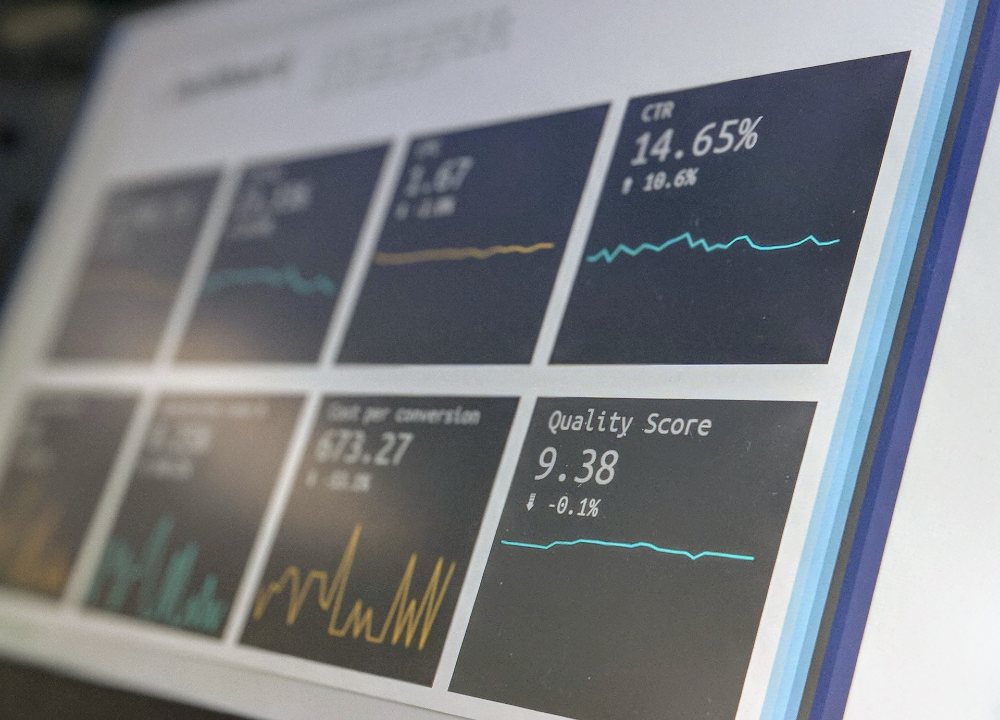
Many organizations believe that a lot of data equals intelligence (or innovative capacity), but this is an ineffective approach. Why pay for a system that makes it so information capture is more complicated because of too much or unnecessary information? For instance, why pay for a system that generates reports on vanity metrics, social media impressions, views of a website when no conversion value exists? It’s a waste of time, money and resources.
Analytics systems that fail to provide actionable insights result in data overload, where decision-makers struggle to separate what matters from what doesn’t. Truly efficient organizations prioritize actionable metrics that are directly tied to performance and strategy and limit unnecessary data collection. By doing so, they reduce the costs and complexities associated with storing and analyzing irrelevant information, ultimately enabling faster, more effective decision-making.
4. Capital Structure Inertia
Hidden inefficiencies can often be found in the structure of a company’s balance sheet. Over the years, Fortune 500 firms have steadily increased their reliance on debt, as seen in the rise of debt-to-total-assets ratios from 0.5% in 1950 to 20.4% in 2020. While leveraging debt can act as a growth engine, many firms fall into the trap of maintaining a static capital structure, regardless of market shifts or economic conditions.
For example, some companies hold excessive cash reserves that earn minimal value, while others continue to operate under high leverage even as interest rates climb. Failing to adjust debt-to-equity ratios to account for factors like inflation or widening credit spreads locks businesses into inefficient financing practices. Optimizing capital structure by aligning it with current economic conditions can help firms unlock trapped value and avoid unnecessary financial strain.
5. High-Friction Talent Utilization

One of the major inefficiencies in many large organizations is the poor use of human capital. The highest-level executives in many companies use their time for tasks that are not high impact for the organization. For example, someone in the Marketing Director role might spend several hours on each monthly report’s formatting and presentation. A VP of Sales might spend extensive time entering or updating customer relationship management data.
While all these tasks are necessary for a well-run company, having people with such high levels of expertise and experience carry out many of them is inefficient. Rather than hiring more staff to carry out these tasks, companies can take steps to reduce friction and inefficiencies in their day-to-day operations. For example, the company can use no-code automation tools to streamline processes.
The Shift to Operational Discipline
The most successful companies were not built by focusing on productivity gains for large organizations. This strategy yields diminishing returns when data demonstrates limited benefits from scaling workforce size and automation adoption.
They synthesized a unique challenge perspective and systemized execution strategy focusing on eliminating hidden operational cost sources. The companies that grow the next decade’s most significant will follow this example, making them ruthlessly efficient and hard to compete with.
Cover Image Credit: Photo by Karolina Grabowska on pexels
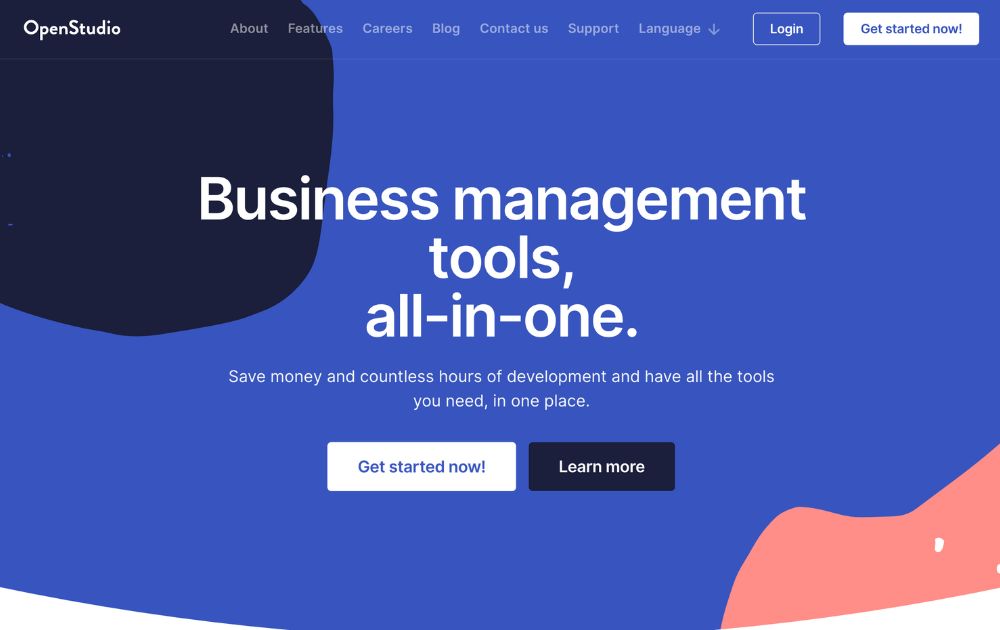
This article focuses on OpenStudio.one, an all-in-one business management suite, not the OpenStudio building energy modeling software developed by the U.S. Department of Energy.
We all need a service that makes business easier, right? Managing your team, your finances, your documents, and your customers can be an arduous juggle. There are a few services out there that help businesses manage all of this.
But have you heard of OpenStudio? No? Well, allow us to make a proper introduction.
OpenStudio helps you centralize all the applications and services you may need in order to run a business.
This app prides itself on helping businesses “save money and countless hours of development,” giving them easy access to all the business tools they need in one platform.
Some of the top features offered by OpenStudio are necessary in order to run a business, but haven’t necessarily been rolled into one package.
OpenStudio offers the following features:
- Administration
- Cloud & Benefits
- Data & Records
- General Services
- Human Resources
- Support
This app also offers IT protocol and documents management, permissions and authorization management, and digital signing of documents.
If you’re looking for a tool that will help you centralize the apps, applications, and services you regularly use, OpenStudio is worth checking out.
The best part? Using this tool is completely free as of the time of writing in 2026, without the need for a credit card to register. The website says they may introduce advanced paid plans in the future.

What’s the Best Design Agency in San Francisco?

5 Quiet Operational Leaks Costing Fortune 500s Millions

The Biggest Hidden Cost in Healthcare Isn’t Staff Time. It’s Operational Friction.

5 Things Even Fortune 500 Companies Quietly Waste Money On

The Biggest Hidden SaaS Cost Isn’t Ads—It’s Post-Click Execution

Top 10 Artificial Intelligence Solutions Your Business SHOULD Use

OpenStudio – Business Management All-In-One

How to Determine Which Social Network Is Right For Your Business

Know These Logo Statistics and Facts to Grow Your Business

How To Do Business Marketing For Free

OpenStudio – Business Management All-In-One

Top 10 Artificial Intelligence Solutions Your Business SHOULD Use

Here’s How You Can Scale Your Business Beyond a 7-Figure Revenue

What’s the Best Design Agency in Las Vegas?
Trending
- People3 days ago
The Biggest Hidden Cost in Healthcare Isn’t Staff Time. It’s Operational Friction.
- Uncategorized3 days ago
The Biggest Hidden SaaS Cost Isn’t Ads—It’s Post-Click Execution
- Business3 days ago
5 Quiet Operational Leaks Costing Fortune 500s Millions
- Business3 days ago
5 Things Even Fortune 500 Companies Quietly Waste Money On
- Uncategorized16 hours ago
What’s the Best Design Agency in San Francisco?






